Can You Drink Coffee Before a Blood Test? Here’s the Research-Backed Answer You Need
Coffee is a beloved part of morning routines worldwide. But when your doctor asks you to fast before a blood test, a burning question arises: can you drink coffee before a blood test?
At Bazan Coffee, we’re committed not just to brewing excellence, but also to offering trustworthy, research-backed answers.
Let’s dive into what happens when coffee meets fasting - and how to sip smarter around medical checkups.
Fasting, Blood Tests, and Coffee - Where They Intersect
Fasting before a blood test typically means no food or drink for 8–12 hours prior to the test.
This ensures accurate results for assessments like:
-
Blood sugar (glucose) levels
-
Cholesterol panels
-
Lipid profiles
But what about coffee? It's "just a drink," right?
Not so fast - coffee is more complex than water. It contains:
-
Caffeine
-
Natural oils
-
Acids
-
Compounds like diterpenes and antioxidants
All of which can influence blood test results in subtle but significant ways.

Can You Drink Coffee Before a Blood Test? Quick Answer: Usually No
According to most health guidelines, you should avoid coffee before a fasting blood test.
As the Mayo Clinic states:
"Even black coffee can interfere with blood test results. You should not eat or drink anything other than water unless specifically instructed otherwise."
The American Heart Association (AHA) and Johns Hopkins Medicine agree:
"Coffee - even without sugar, milk, or cream - stimulates digestive and metabolic processes, affecting glucose and lipid readings."
Thus, black coffee still breaks your fast from a clinical perspective.
Why Coffee Affects Blood Test Results
1. Caffeine’s Impact on Blood Sugar and Hormones
Caffeine:
-
Stimulates the release of adrenaline
-
Temporarily raises blood sugar levels
-
Increases insulin resistance
SCA’s 2023 Coffee and Physiology Review explains:
"Caffeine ingestion alters glucose metabolism, potentially leading to false readings in fasting glucose and HbA1c tests."
This could skew diabetes screenings or blood sugar evaluations.
2. Coffee’s Effect on Lipid Profiles
Certain compounds in coffee, particularly diterpenes (cafestol and kahweol), can:
-
Raise LDL (bad) cholesterol
-
Increase total cholesterol levels
While filtered coffee reduces these effects significantly, unfiltered methods (like French press or espresso) still allow diterpenes through.
Barista Hustle’s 2022 Filtration and Health Impact Study notes:
"Unfiltered coffee consumption can influence lipid profiles, complicating cholesterol testing."
3. Coffee and Dehydration
Coffee’s mild diuretic effects:
-
Increase urination
-
Slightly concentrate blood plasma if hydration isn’t maintained
This may affect electrolyte panels or kidney function tests, though effects are minor for moderate coffee intake.
Still, during fasting, water-only intake ensures purest readings.

What About Black Coffee vs Coffee with Additives?
-
Black coffee already impacts results (through caffeine, acidity, and metabolic stimulation).
-
Adding sugar, cream, or milk worsens the interference by:
-
Introducing fats
-
Altering glucose response
-
Triggering digestive enzymes
Thus, any form of coffee - black or flavored - is best avoided before fasting bloodwork.
FAQ: Coffee and Blood Testing - Your Common Questions Answered
Can I drink decaf coffee before a blood test?
Decaf has much less caffeine, but still contains small amounts of:
-
Caffeine
-
Acids
-
Bioactive compounds
Thus, even decaf coffee can potentially interfere, and water remains the safest choice.
How long before a blood test should I stop drinking coffee?
If fasting is required:
-
Stop drinking coffee at least 8–12 hours before your appointment.
-
Stick to water only.
Bazan Tip: Schedule morning blood draws so your fast occurs overnight while sleeping - making it easier to skip coffee temporarily.
Can I drink coffee after my blood test?
Absolutely!
Once your blood sample is collected, you can enjoy your favorite Bazan Coffee guilt-free - in fact, it might help boost your energy afterward!
Smart Coffee Practices Around Medical Testing
|
Goal |
Strategy |
Bazan Recommendation |
|
Avoid fasting interference |
Skip coffee entirely before test |
Rehydrate with water only |
|
Celebrate post-test |
Enjoy a clean, smooth coffee after |
Cau Dat Arabica |
|
Protect heart health |
Choose medium roast, low-diterpene coffee |
Special Vietnam Blend |
|
Support hydration |
Pair coffee with a glass of water afterward |
All Bazan Coffees |
Coffee Quality Matters: Bazan’s Commitment to Health-Conscious Brewing
Even outside of fasting periods, coffee quality impacts health.
At Bazan Coffee, we deliver:
-
Specialty-grade beans, naturally low in unwanted residues
-
Clean fermentation and gentle roasting processes
-
Balanced profiles supporting energy, mental clarity, and well-being
From our Cau Dat Arabica cold brew to the Special Vietnam Blend, Bazan brews are crafted for those who love coffee and prioritize health.
Can You Drink Coffee Before a Blood Test? No - But You Can Celebrate Afterward
So, can you drink coffee before a blood test?
No.
Even black coffee contains compounds that:
-
Alter blood sugar
-
Influence cholesterol
-
Impact metabolism
To ensure the most accurate results, it’s best to fast with water only before your test - and then enjoy a fresh, delicious Bazan brew afterward as your reward!
At Bazan Coffee, we’re with you at every stage of life - from early mornings to health journeys and everything in between.
Brew Smarter, Live Healthier with Bazan Coffee
Explore our health-conscious brews:
-
Cau Dat Arabica - Smooth, clean, low-acid coffee for mindful mornings.
-
Special Vietnam Blend - Balanced, flavorful brew perfect for post-checkup celebrations.
-
Fine Robusta – Krong Năng - Bold energy for powerful new beginnings.
Trust your brew. Celebrate your health. Choose Bazan Coffee.




